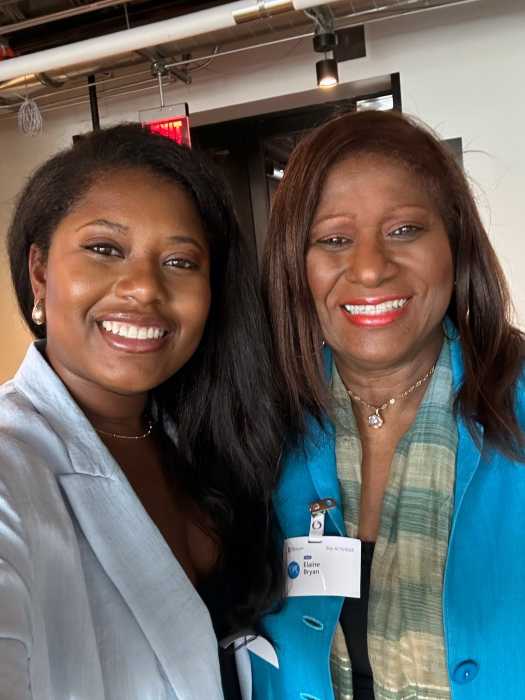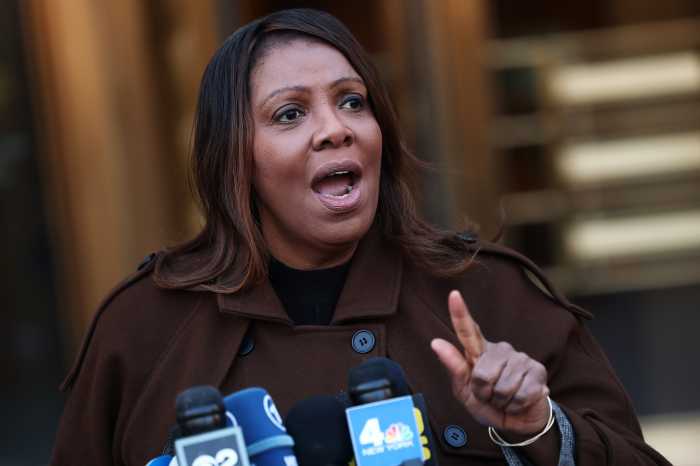A coalition of 18 attorneys general from around the United States have called on the Trump administration to delay implementation of its Public Charge Rule against Caribbean and other immigrants as the coronavirus (COVID-19) progresses nationwide.
The Public Charge Rule drives immigrants and their families away from accessing the health benefits to which they are entitled by threatening their eligibility for green cards and visas.
As the coronavirus spreads across the US, the attorneys general said immigrants should be encouraged to access health insurance and medical care, “but the Trump administration’s rule does the opposite.”
“Every person who doesn’t get the health coverage they need today risks infecting another person tomorrow,” said New York Attorney General, Letitia James, the lead attorney general on the issue.
“More and more individuals across the nation become infected with the coronavirus every day, yet the Trump administration refuses to assure immigrants that getting the tests and health coverage they need will not be used against them,” she added. “At this time, we should all be working to make testing and health coverage available to every single person in this country, regardless of immigration status. Our coalition will continue fighting to protect the health and well-being of our nation by halting this rule.”
The attorneys general said US federal law allows lawful immigrants to apply for public benefits if they have been in the country for at least five years.
But they said that the new Public Charge Rule creates a “bait-and-switch”: “If immigrants use the public assistance to which they are legally entitled, they would jeopardize their chances of later renewing their visa or becoming permanent residents.
“As a result, since the spread of COVID-19 began in the United States, immigrants may now be afraid to seek out the health coverage they need to remain healthy,” the coalition said.
Earlier this month, the coalition of attorneys general sent a letter to the US Department of Homeland Security (DHS) and US Citizenship and Immigration Services (USCIS) seeking to suspend the Public Charge Rule as coronavirus infections began increasing in the United States.
Though neither agency responded to the initial letter, the attorneys general said USCIS last week posted what they described as “a confusing and contradictory alert claiming to offer a resolution for immigrants.
According to the attorneys general, the alert said the government would not consider any form of testing or care related to COVID-19 in immigrants’ public charge assessment, “even if such treatment is provided or paid for by one or more public benefits, as defined in the rule (e.g. federally funded Medicaid).”
In response, the coalition have now sent another letter to DHS and USCIS again calling for a halt of the rule, pointing out that last week’s alert contains “confusing and contradictory statements about the impact that using Medicaid would have on non-citizens.”
“If DHS is attempting to ensure noncitizens in our communities remain enrolled in Medicaid so they can use Medicaid services should they have symptoms of COVID-19, the Alert fails to achieve this,” the attorneys general’s letter said. “And likewise, if DHS is attempting to ensure that noncitizens seek testing and treatment for COVID-19 without fear of public charge consequences, the Alert also utterly fails to achieve this.
“The Alert fails to recognize that, in order to receive adequate health services, our residents need adequate health insurance benefits,” the letter added. “To achieve DHS’s stated goal of encouraging noncitizens to seek testing and treatment for COVID-19, noncitizens must be encouraged to enroll or remain enrolled in health insurance programs, including Medicaid, and they must be assured that such enrollment during this dire national health emergency will not be considered in any future public charge determination.”
The attorneys general said the conflicting statements could cause Caribbean and other immigrants to forgo medical treatment during this national crisis, “which could be critical to protecting communities from the spread of COVID-19.”
“Given the grave danger facing our nation’s health and economy, it is imperative that DHS not chill immigrants from enrolling in Medicaid or using Medicaid benefits for any purpose until the COVID-19 crisis is over,” they said.
“Under the Alert, however, noncitizens who remain enrolled in Medicaid continue to risk their green cards and visas,” they added. “As DHS previously conceded, this will prompt immigrants to disenroll from Medicaid and lead to an ‘increased prevalence of communicable diseases,’ as the nation is now experiencing at a horrifying rate.
“To protect the residents of our states and the rest of the country, we ask that DHS immediately announce that the Rule is stayed pending successful containment of COVID-19,” the attorneys general continued. “Short of that, however, it is imperative that DHS at least make clear that enrollment in Medicaid and the use of Medicaid benefits for any reason will not be considered in the public charge assessment.
“Given that these benefits were not considered in the public charge assessment for many years prior to DHS’s recent change of policy, it is inexplicably harmful for the agency to begin counting them now, during the outbreak of a lethal global pandemic,” they said.
Last August, James and a coalition of states and New York City filed a lawsuit challenging the Trump Administration’s Public Charge Rule, citing that the rule specifically targets immigrants of color, while putting these communities at risk, and would have short- and long-term impacts on public health and the economy.
Joining James in sending the latest letter to USCIS were the attorneys general of California, Connecticut, Delaware, Hawaii, Iowa, Massachusetts, Michigan, Minnesota, Nevada, New Mexico, New Jersey, Oregon, Pennsylvania, Vermont, Virginia, Washington and the District of Columbia.
In light of the US Supreme Court’s Feb. 21, 2020 decision to stay the statewide injunction preventing implementation of the Final Rule issued by US District Court for the Northern District of Illinois, USCIS said it “will now apply the final rule to all applications and petitions postmarked (or submitted electronically) on or after Feb. 24, 2020.”
USCIS said the final rule includes a requirement that Caribbean and other immigrants seeking an extension of nonimmigrant stay or change of nonimmigrant status “demonstrate that they have not received public benefits over the designated threshold.”
Caribbean American Democratic Congresswoman, Yvette D. Clarke expressed outrage over the US Supreme Court’s ruling that allowed the Trump administration to deny green cards to Caribbean and other immigrants who may need government aid.
“As a product of the hopes and dreams of an immigrant family, I am outraged by the Supreme Court’s decision to implement the public charge rule – a cruel policy Donald Trump has crafted to jeopardize the lives of our nation’s most vulnerable,” Clarke, the daughter of Jamaican immigrants, told Caribbean Life.
“Historically, the United States has served as a place of refuge for individuals around the world seeking to fulfill the American Dream,” added the representative for the 9th Congressional District in Brooklyn. “Immigrants are our neighbors, our friends, leaders in our communities and even our members of Congress.
“It is disturbing to witness a global leader toying with people’s lives, and we must not stop fighting until Donald Trump is removed from office,” continued Clarke, a very ardent critic of Trump’s immigration policies.
In September, Clarke had joined members of the United States Congressional Tri-Caucus – which includes the Congressional Hispanic Caucus (CHC), Congressional Black Caucus (CBC) and Congressional Asian Pacific American Caucus (CAPAC) – in filing amicus briefs opposing the public charge rule aimed at legal Caribbean and other immigrants who wish to remain in the US but whose dearth of financial resources are deemed likely to make them a burden on US taxpayers.

























